Top 10 Most Inflammatory Foods to Avoid
Inflammatory foods are major players in the development of much of the suffering in our society. This is because the process of inflammation is at the root of most chronic health issues. No wonder you want to learn what foods you need to eliminate and what diet to follow to reduce inflammation, pain, and disease. It can feel confusing to find the right dietary advice with so many options available.
The truth is that eating healthy is actually rather simple. Once you understand what foods may damage and what foods may protect your health, you can finally eat a nutrient-dense diet without a worry, healing your body with every bite.
In this article, you will learn about the role of diet and inflammation and the main causes of inflammation. We’ll discuss the top 10 inflammatory foods you need to eliminate, what to choose instead, and how to eat a healing diet that benefits your health.
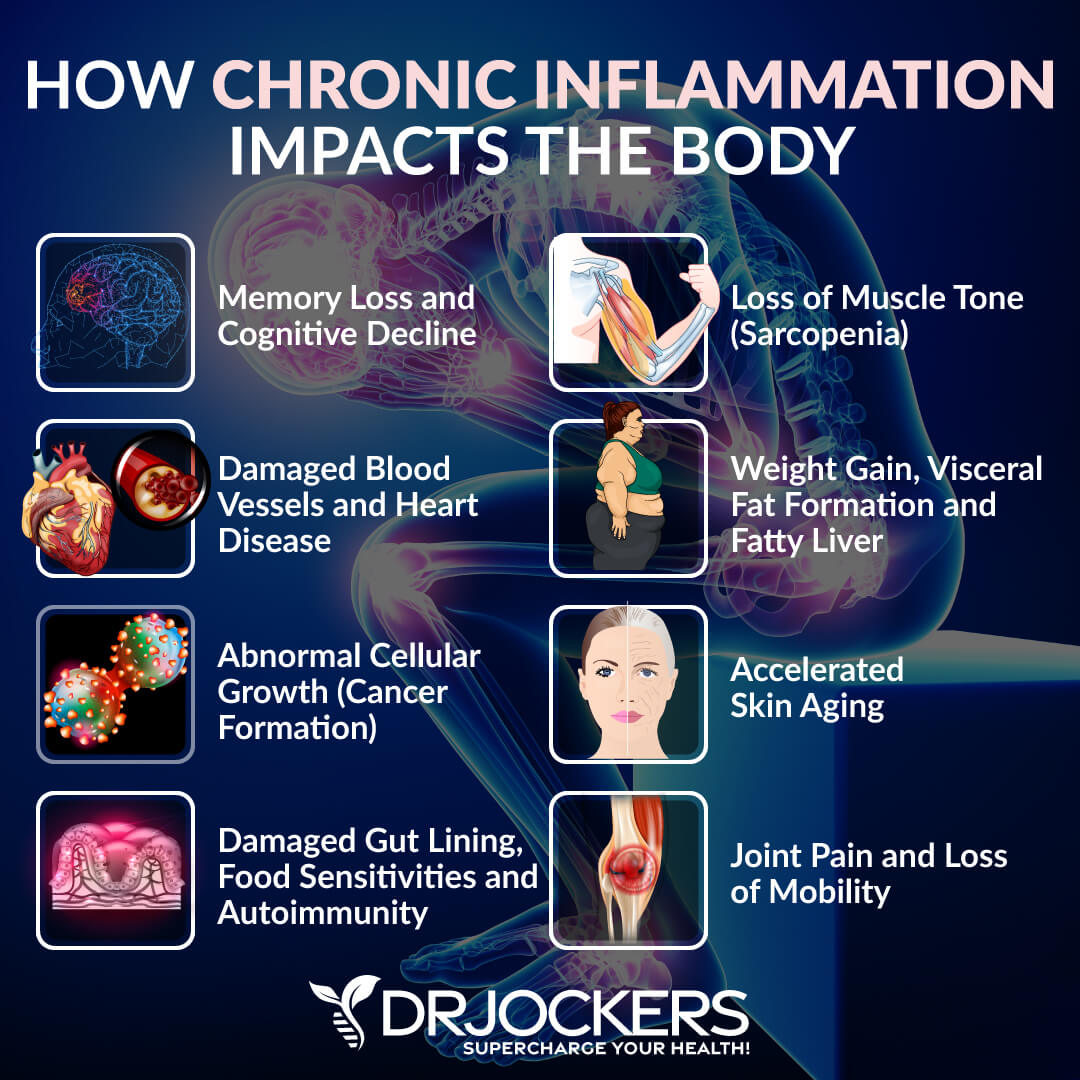
What Is Inflammation
Inflammation is your body’s defense mechanism to fight against potential harm, such as infections, injuries, and toxins. It’s part of your body’s inherent immune response that promotes healing and recovery.
Inflammation itself is not bad. Acute inflammation helps you to repair tissue damage when you have an injury and helps you recover from colds, illnesses, or exposure to allergens.
When it comes to inflammation, the problem is chronic inflammation, which is the result of an excessive stress load on your body, including physical, emotional, and chemical stress. Being exposed to constant stressors, your immune system becomes overwhelmed and increases the inflammation response.
This may lead to more white blood cells, cell changes, and eventually tissue and organ damage. Chronic inflammation plays a role in a variety of chronic pain symptoms and health issues, including metabolic syndrome, type 2 diabetes, Alzheimer’s disease, non-alcoholic fatty liver disease, and autoimmune conditions (1, 2, 3).
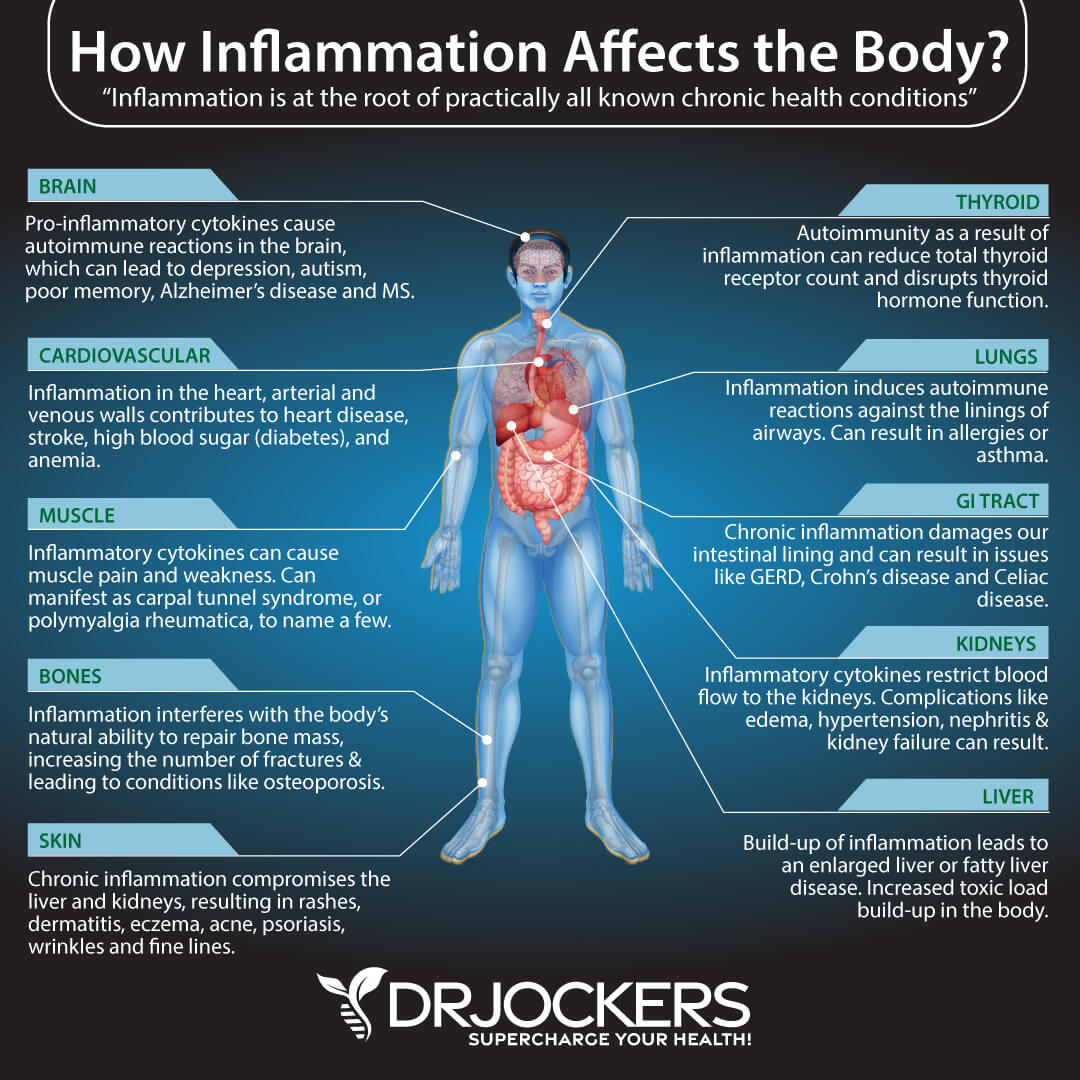
The Role of Diet and Inflammation
Diet plays a major role when it comes to inflammation. An inflammatory diet that is low in nutrients is one of the main causes of modern-day inflammation. Cytokines are proteins secreted by your immune system to regulate your immune response. Certain foods can trigger your immune system and lead to the overproduction of pro-inflammatory cytokines and the underproduction of anti-inflammatory cytokines (4, 5).
The good news is that your diet also plays a role in preventing and reducing inflammation. While inflammatory foods, such as sugar, refined oils, and gluten, may increase the risk of inflammation, eating an anti-inflammatory diet may help you to overcome chronic inflammation and improve your health.
To learn more about chronic inflammation, read this article.
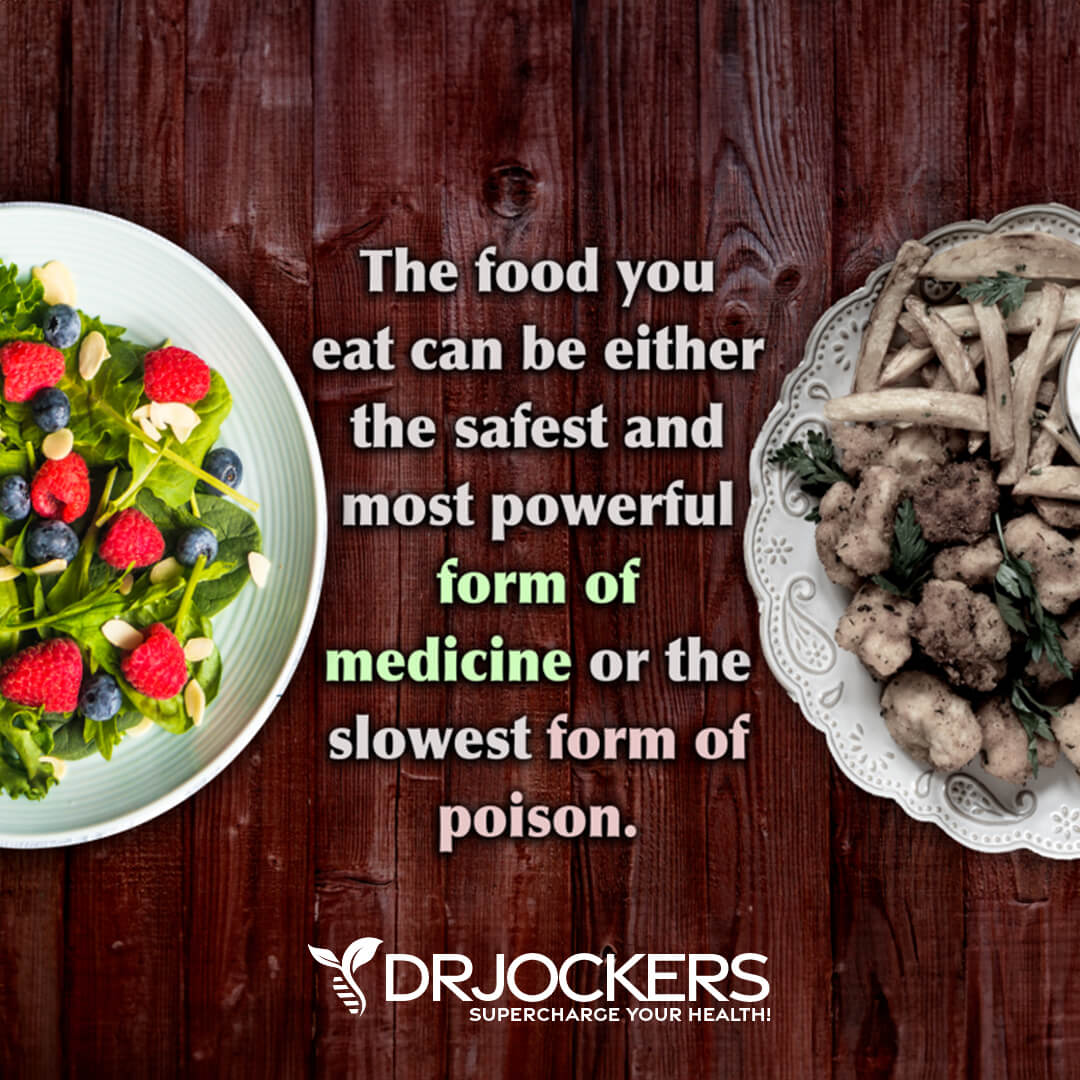
Major Nutritional Factors for Inflammatory Foods
When it comes to your diet, there are several major factors that play a role in chronic inflammation. When we consume food, it will have an impact on our physiology. These 3 factors are key considerations when it comes to the foods we choose. Let’s take a look at each.
Blood Sugar Impact
An inflammatory diet with too much sugar may lead to blood sugar imbalances in your body. This may cause inflammation and the overproduction of inflammatory cytokines, increasing your risk of insulin resistance and elevated blood sugar levels, leading to further inflammation, pain, and disease (6, 7).
To learn about how to balance your blood sugar, read this article.
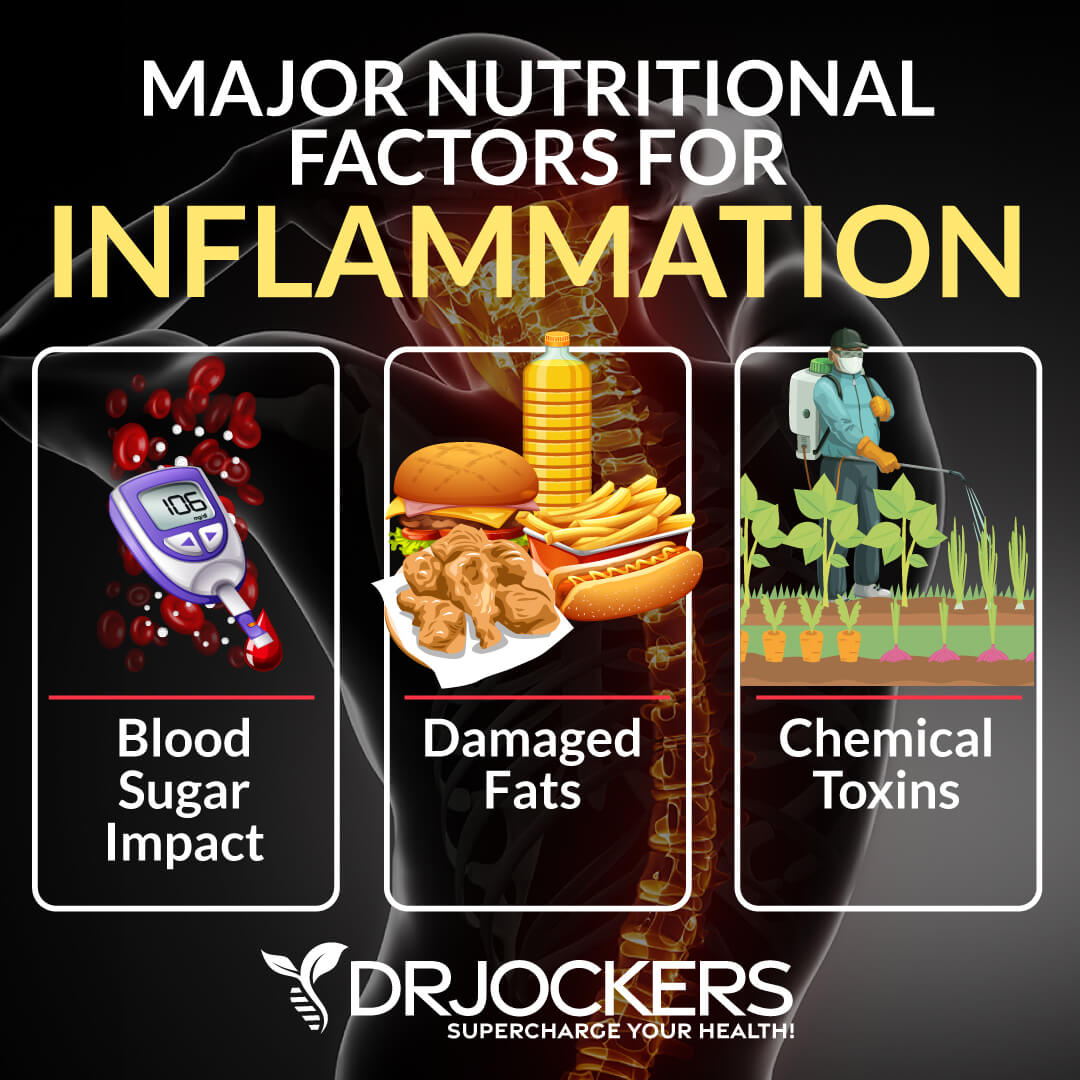
Damaged Fats in Inflammatory Foods
Your body needs fats for fuel, however, not all fats are created equal. Polyunsaturated fats, such as corn, soybean, safflower, and other vegetable oils, are highly unstable and are prone to oxidation when exposed to heat, light, or air.
During the cooking process, they also become damaged or oxidized, making them even more inflammatory and destructive to your health (8). These oils are particularly bad for the endothelial lining of your blood vessels and for your skin: they greatly contribute to the formation of acne, age spots, and wrinkles.
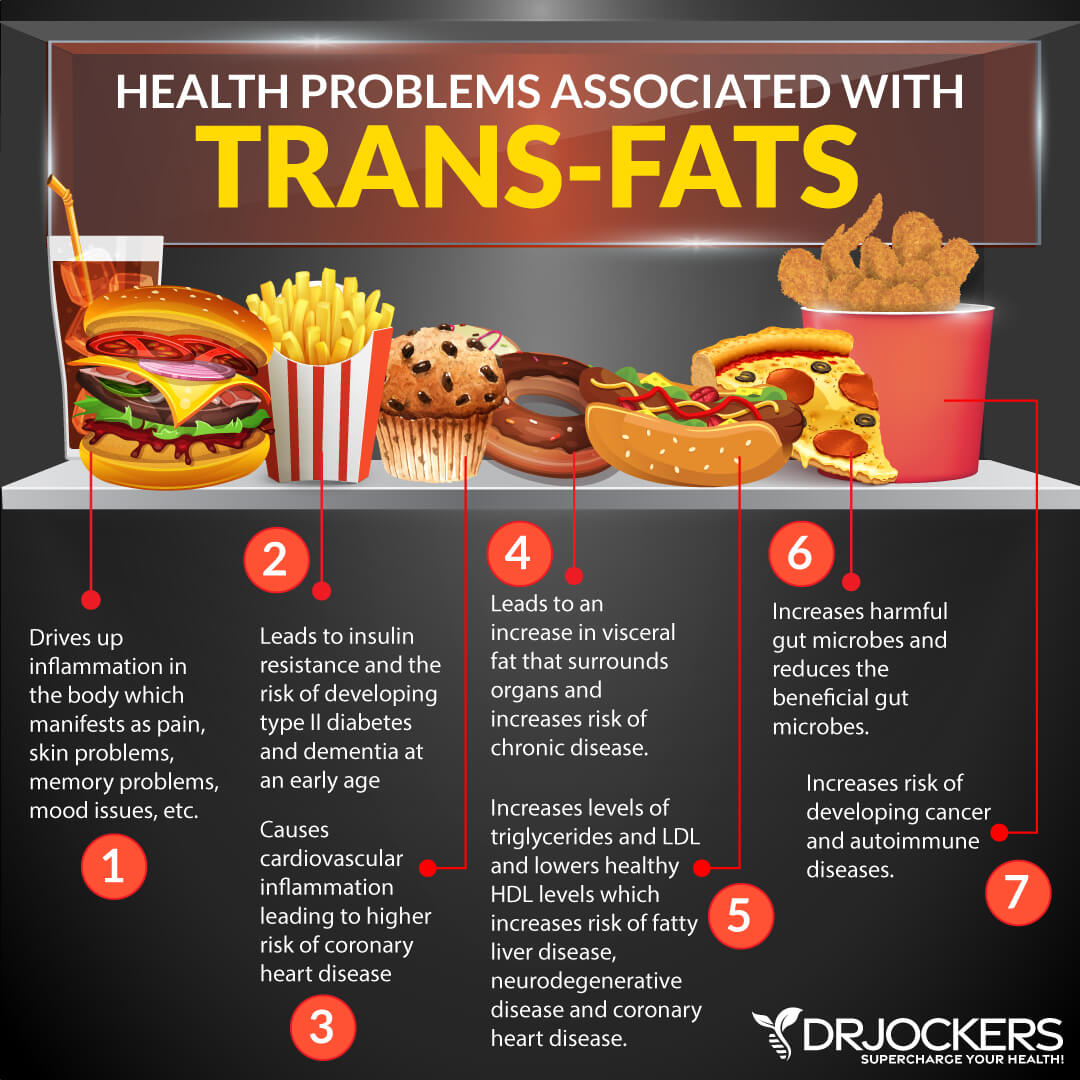
Chemical Toxins in Inflammatory Foods
Environmental toxins are everywhere, in our air, food, water, and products. Long-term exposure to environmental toxins may overwhelm your immune system and increase chronic inflammation. An inflammatory diet with lots of processed, refined, and non-organic foods is high in toxins.
Choosing an anti-inflammatory, organic, and healing diet, however, may lower inflammation. Furthermore, it’s important that you use organic, natural, or homemade products and spend time in nature, breathing fresh air.
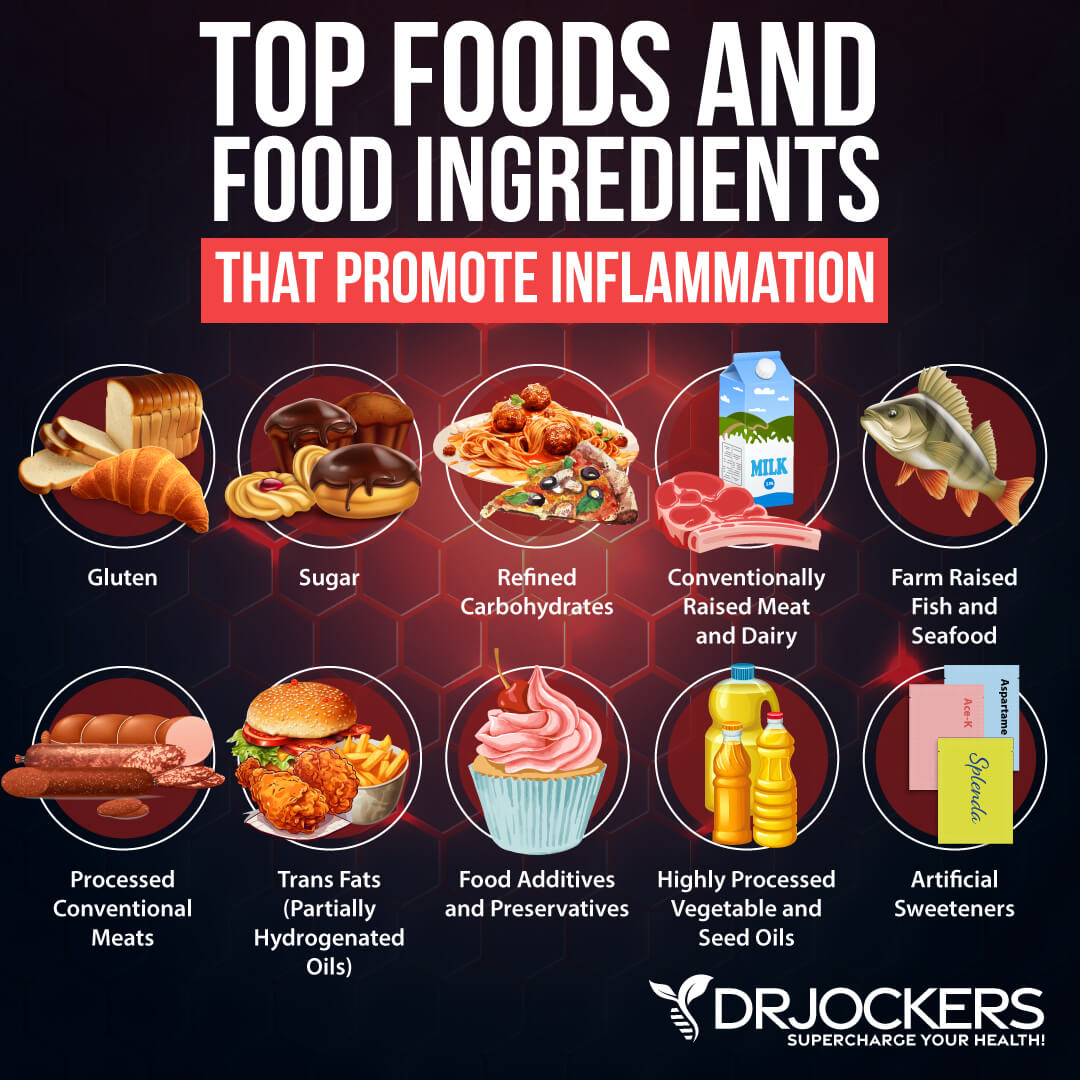
Top 10 Most Inflammatory Foods
To eliminate chronic inflammation, it is important that you eliminate inflammatory foods from your diet. Let’s look at the top 10 culprits.
1. Gluten
Gluten is a protein found in a variety of grains, including wheat, rye, and barley. It’s found in bread, pizza, pasta, cereal, and many other foods.
Gluten is particularly dangerous and must be completely eliminated by individuals with Celiac disease or a gluten allergy. What is more common, however, is gluten sensitivity, which may cause a low-level chronic inflammation, a variety of symptoms, and leaky gut. Eliminating gluten may lower inflammation levels and improve your health (9).
Alternatives: Gluten-free Alternatives
Choose gluten-free flours, including almond, coconut, quinoa, and amaranth flour. Use lettuce for burgers and sandwiches, collard greens for wraps, cauliflower for pizza crust, toasted sweet potato for avocado toasts, portabella mushrooms instead of buns, zucchini or cucumber noodles instead of pasta, and veggie sticks instead of crackers.
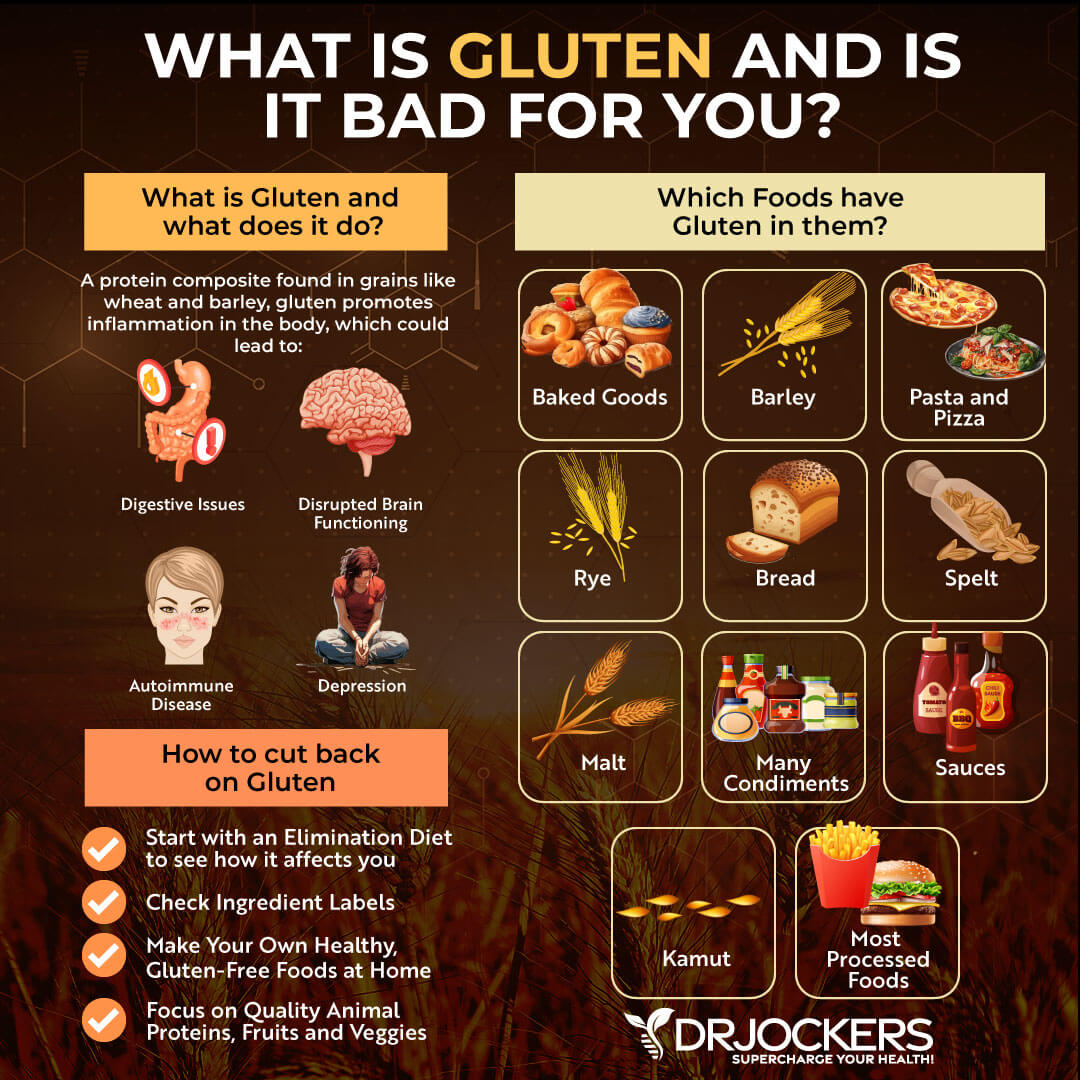
2. Sugar and Inflammatory Foods
I bet that you are not surprised to see sugar on this list. Sugar is one of the most inflammatory foods, yet refined sugar is lurking everywhere from candy, snack bars, baked goods, pastries, sodas, sugary drinks, sweetened coffee and tea, pasta sauces, condiments, and more.
When you eat too much sugar, your body simply cannot process it quickly enough. As a result, it releases pro-inflammatory messengers called cytokines. It may damage your immune system and lead to blood sugar issues (10).
Alternatives: Low-GI Whole Fruits, Vegetables, and Natural Sweeteners
If you are looking for something sweet, low-glycemic index fruits, such as berries and green apples, and sweet vegetables, such as beets and carrots, provide plenty of sweetness with lots of nutrients and fiber to help slow the breakdown of sugar.
Natural sweeteners, such as monk fruit and stevia, may also sweeten your teas and baked goods without disrupting your blood sugar balance and resulting in inflammation.
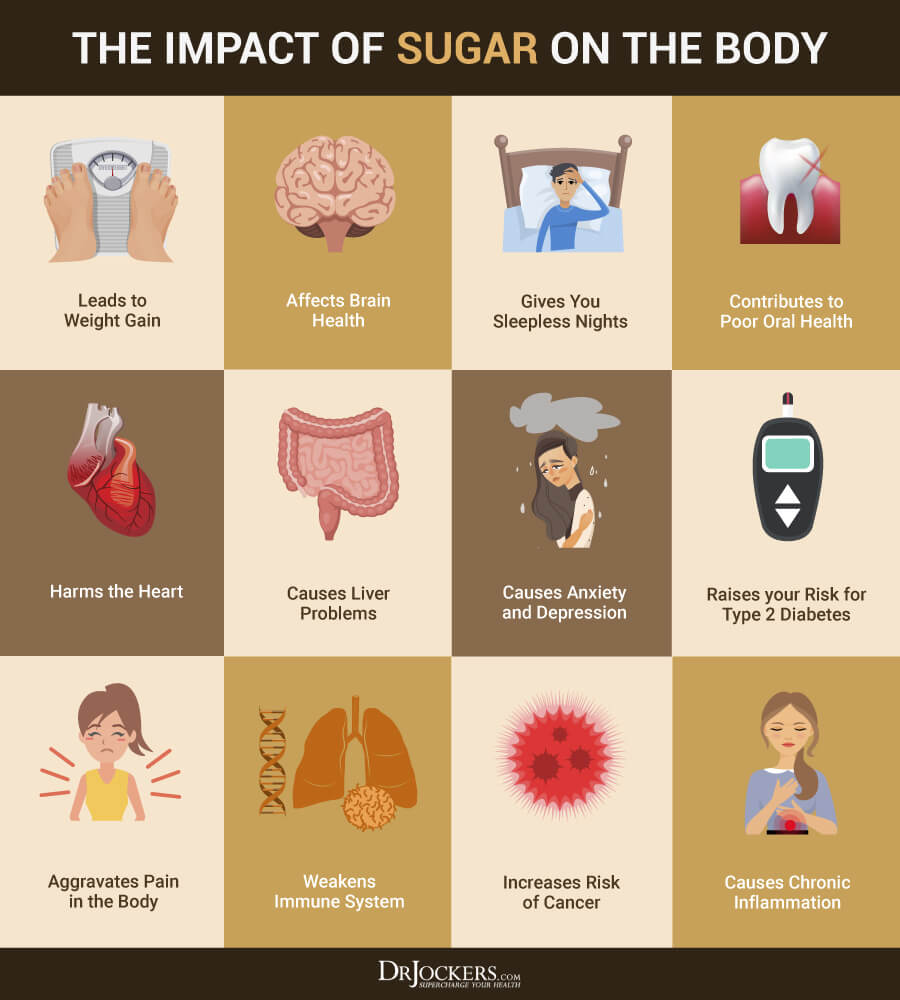
3. Refined Carbohydrates are Inflammatory Foods
Refined carbohydrates and refined flour are found in most baked goods and other foods in your grocery stores, including white bread, bagels, crackers, pasta, flour tortillas, and breakfast cereal. Besides possibly being full of gluten, they are inflammatory and low in nutrients.
Refined wheat flours are high in sugar. They are stripped of nutrients and slow-digesting fiber. Hence, your body breaks them down way too quickly, leading to blood sugar spikes, pro-inflammatory response, inflammation, and health issues (11).
Alternatives: Unrefined Flours and Creative Options
Look for gluten-free and unrefined flours. Get creative by eating kale chips or sweet potato chips cooked in coconut oil instead of potato chips. Use veggie sticks instead of wheat crackers, collard greens and lettuce instead of bread and tortillas, coconut wraps instead of flour wraps, cauliflower rice instead of white rice, baked sweet potato fries instead of French fries, and zucchini noodles or palmini noodles instead of pasta.
You can also check out our recipes for various types of bread alternatives, including coconut flour bread, almond butter bread, and our garlic and rosemary cauliflower bread. Check out the graphic below for more ideas.
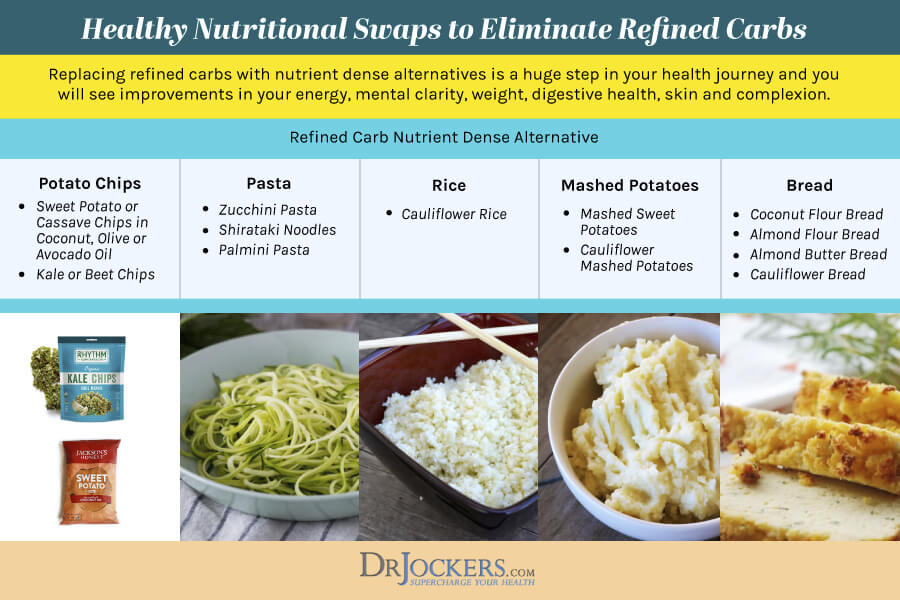
4. Conventionally Raised Meat and Dairy
I believe that eating meat is extremely important for your health. However, the kind of meat you eat matters. Any meat that is not organic and animals not being treated with the highest standards are full of hormones and not the best option. Hormones, antibiotics, and GMOs coming from grain-fed animals are highly inflammatory.
Historically, dairy has been part of a healthy human diet. Unfortunately, in recent decades, man-made refineries have manipulated the dairy-creation process, turning these once-superfoods into inflammatory foods. Conventional dairy is not organic and is not obtained from pasture-raised animals. It’s full of growth hormones, antibiotics, GMOs, and toxic pesticides, making them highly inflammatory and disruptive to your gut microbiome (12).
Alternatives: Grass-fed, Raw Dairy, and Non-Dairy Options
It is important that you make sure that the meat you eat comes from animals that were raised humanely and fed a diet that is meant to keep them healthy and are not treated with hormones. Make sure to eat pasture-raised poultry, grass-fed beef and lamb, and wild-caught fish.
Grass-fed raw dairy, including raw milk, grass-fed butter and ghee, and fermented yogurt or kefir, is generally healthy for most people. People with mild to serious inflammatory conditions and immune dysregulation may have a difficult time tolerating even raw dairy. I recommend that you eliminate dairy for 90 days, then add it back to see how you tolerate raw and fermented dairy in small amounts. Non-dairy alternatives include coconut milk, coconut yogurt, coconut kefir, almond milk, and cashew milk.
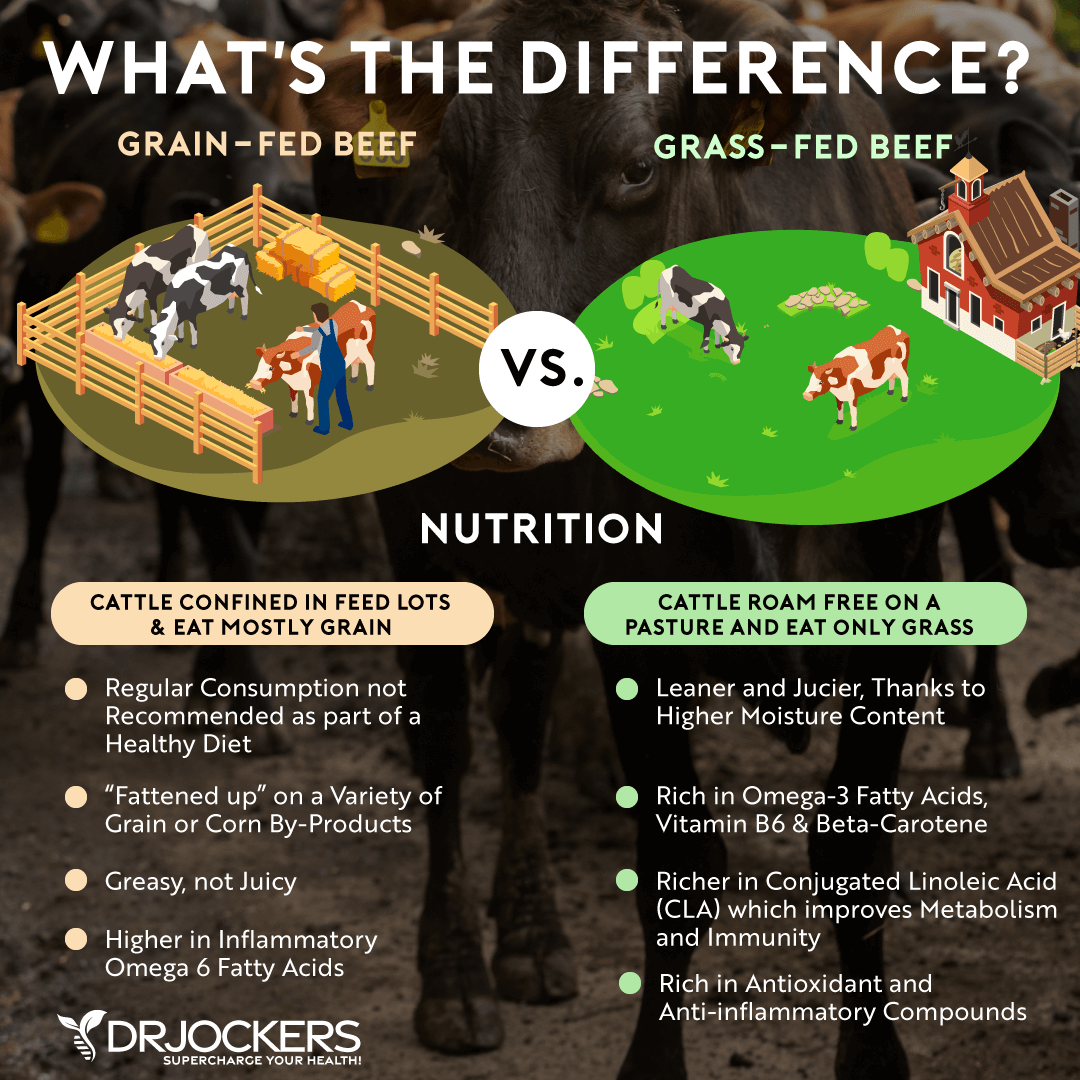
5. Farm-Raised Fish and Seafood
Fish and seafood are healthy sources of anti-inflammatory omega-3 fatty acids and protein. However, as always, it’s important that you know your source and choose seafood that supports your health.
Farm-raised fish are raised in crowded conditions, are often given antibiotics, and fed a less-than-optimal diet. Farm-raised fish and seafood generally have more inflammatory omega-6 fatty acids, higher chemical exposure, and less protein than their wild-caught counterparts (13).
Alternatives: Wild-Caught Fish
If you want to eat fish, I recommend wild-caught fish. Choose fish that is low in mercury, such as salmon, cod, tilapia, chunk light tuna, mullet, herring, anchovies, and sardines (14).
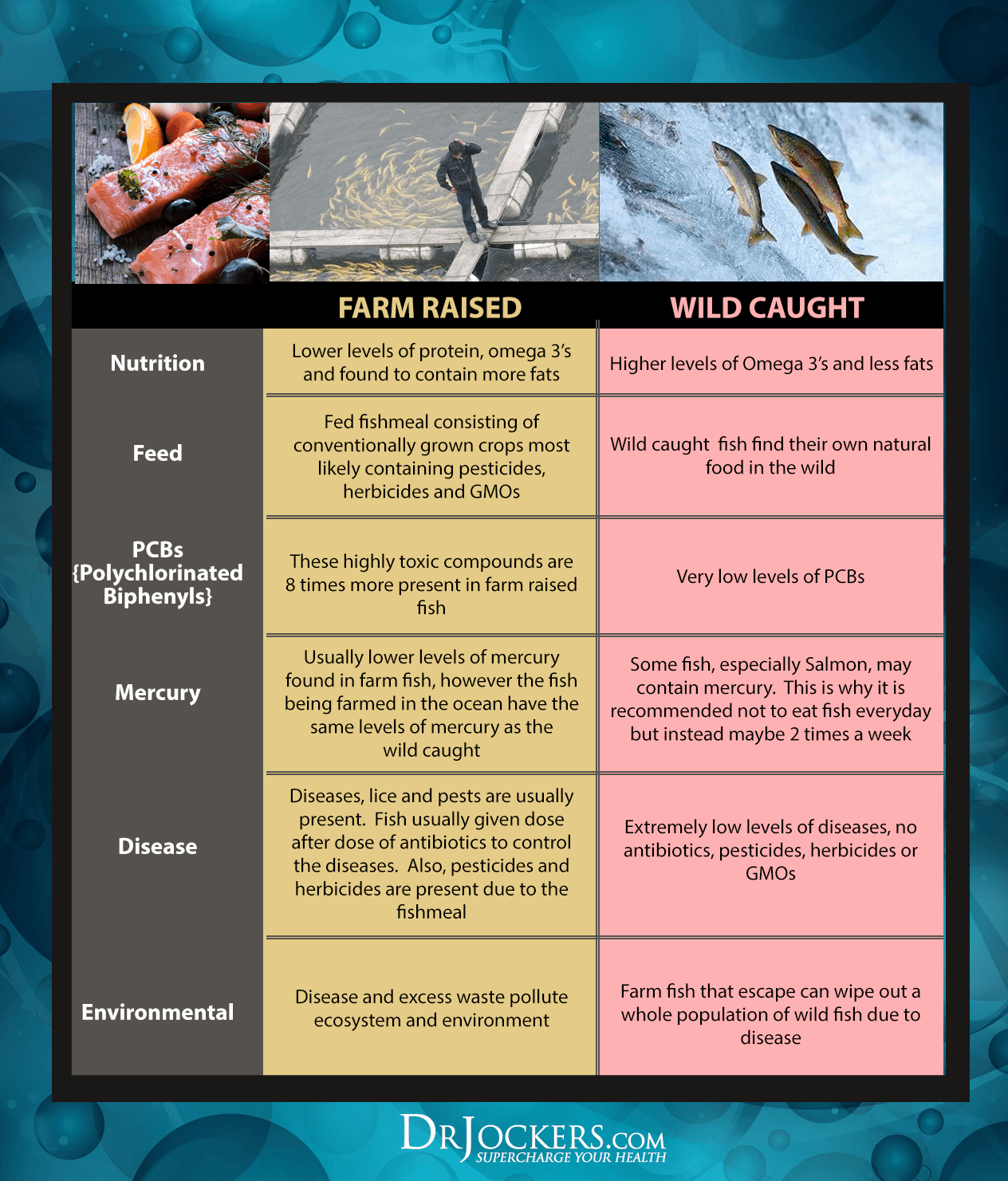
6. Processed Conventional Meat
As you’ve learned earlier, eating meat is extremely important for your health. However, it’s crucial that you eat healthy meat.
Processed meat, such as deli meat and cured meat, is not organic, highly processed, full of hormones, additives, and other unhealthy ingredients. No wonder, they are highly inflammatory.
Alternatives: Pasture-Raised and Wild-Caught Options
I recommend that you choose pasture-raised poultry, grass-fed beef, bison, and lamb, and wild-caught fish. If you have trouble finding these at your local grocery store or health food store, then you can order virtually any type of meat and various cuts through Slankers, and they will deliver right to your door.
Where to Get the Best High Quality Meat Products
I get my grass-fed and grass-finished beef from Wild Pastures, which provides the highest quality meat products from farmers who take great care of their land and their animals. By partnering with a network of small, local farms across the country and buying in bulk (absolutely no imported meat or factory farms!), they are able to charge less than competitors while offering higher quality, fresher meat.
How Wild Pastures Works:
- Wild Pastures sources from farmers and fishermen who meet the highest standards for quality.
- You choose your box and delivery frequency. They offer curated and customized boxes, so you get exactly what you and your family love.
- Wild Pastures ships your order frozen at the peak of freshness and packed in an eco-friendly, 100% recyclable box.
- You enjoy high-quality meat delivered to your door and more time for amazing meals together.
Here are the reasons why I LOVE using Wild Pastures
- High-Quality Meat: Delicious 100% grass-fed beef, pasture-raised chicken, heritage-breed pork, and wild-caught seafood.
- Unbeatable Value: Average cost = Less than $7 per meal.
- Flexibility: Box options and delivery frequencies to fit your needs, cancel any time with no penalty.
- Convenience: Great-tasting, high-quality meat you can feel good about, delivered right to your doorstep (FREE shipping).
- Decisions That Make a Difference: Wild Pastures cares about animals and our planet, improving livelihoods for farmers and better meals enjoyed together.
If you sign up for Wild Pastures today, you can get $100 off ($20 OFF your first 5 boxes!)
7. Trans Fats (Partially Hydrogenated Oils)
You might’ve heard the news already: trans fats are bad. There are two types of trans fats you may encounter in foods: naturally occurring and artificial trans fats. Naturally occurring trans fats are made in the gut of some animals, and they may be found in small quantities in milk and meat products. The real problem, however, is with artificial trans fats that are industrially produced through a process that adds hydrogen to liquid vegetable oils in order to solidify them.
Partially hydrogenated oils are the primary dietary source of trans fatty acids in processed foods. Even the US Food and Drug Administration (FDA) doesn’t recognize them as safe. They are highly inflammatory and may raise your risk of high cholesterol, diabetes, heart disease, and strokes (15).
Alternatives: Grass-Fed Butter and Healthy Oils
I recommend that you choose grass-fed butter or ghee, coconut oil, or avocado oil.
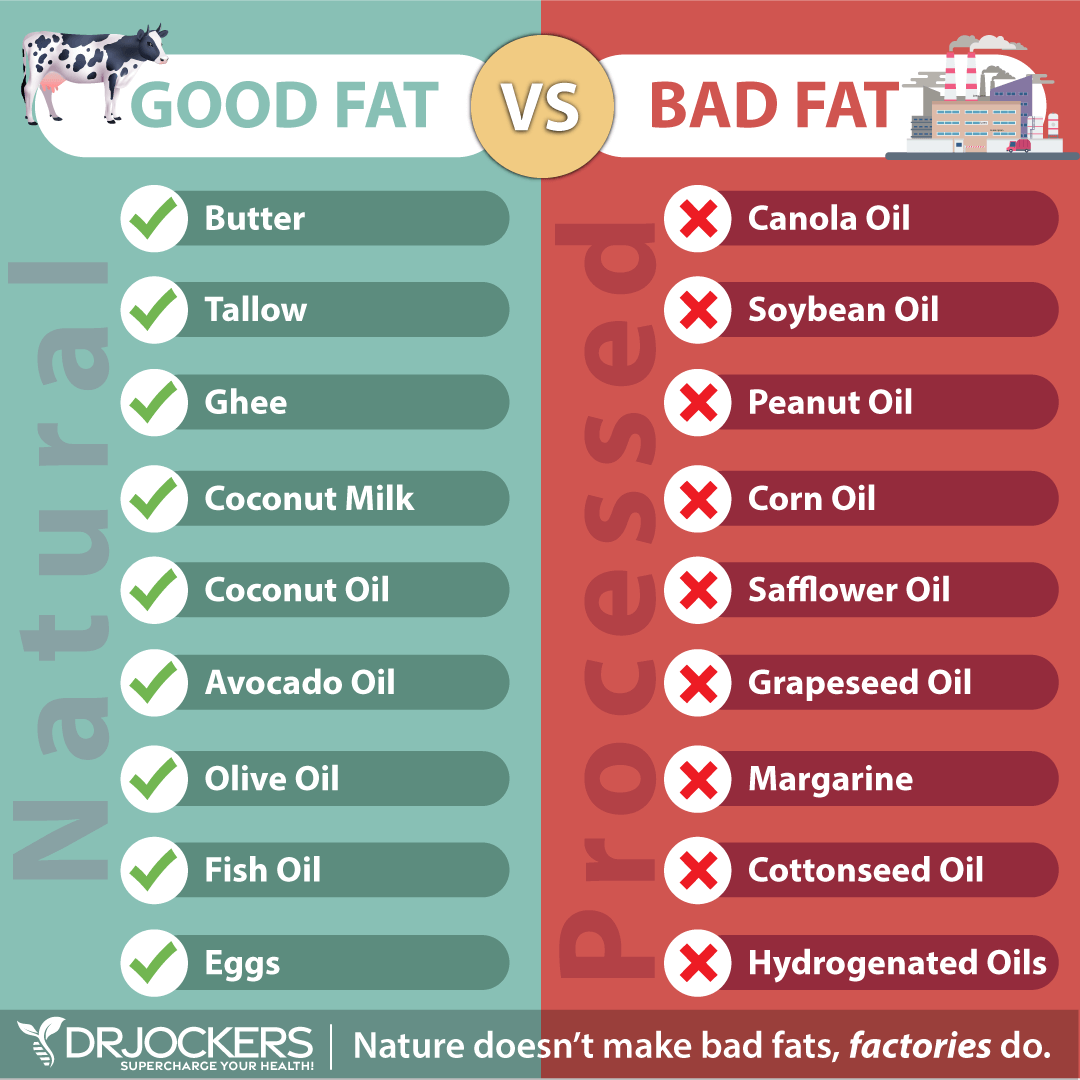
8. Food Additives and Preservatives in Inflammatory Foods
If you carefully look at the ingredients of some processed foods at the grocery store or even in your own pantry, you will spot several food additives and preservatives. These ingredients are used to enhance flavor, texture, or color, or to extend shelf life. They have no nutritional value and are often inflammatory and harmful to your health.
Monosodium glutamate is used to enhance the flavor of some savory dishes at fast food restaurants. It has been associated with metabolic syndrome, weight gain, and other health complaints. Artificial coloring, such as Blue 1, Red 40, Yellow 5, and Yellow 6, has been associated with allergic reactions, inflammation, and some cancers.
Sodium nitrate found in processed meats may lead to inflammation and cancer. Other food additives and preservatives you should avoid include high fructose corn syrup, guar gum, sodium benzoate, trans fats, and any artificial flavoring (16, 17, 18).
Alternative: Organic Whole Foods
Choose organic whole foods and organic natural products without additives and preservatives.
9. Highly Processed Vegetable and Seed Oil
When it comes to fat consumption, it is important that you understand the importance of a healthy omega-3 to omega-6 ratio to control inflammation. A diet too high in omega-6 fatty acids is highly inflammatory and may contribute to the development of pain and disease. Omega-3, on the other hand, is anti-inflammatory (19).
While it is impossible to avoid omega-6 fatty acids, as some nutrient-dense foods, such as almonds, cashews, and other nuts, have some in them, it’s important to make sure that omega-3s dominate your ratio. Vegetable oils, such as corn oil, canola oil, soybean oil, safflower oil, cottonseed oil, and peanut oil, are high in omega-6 fatty acids. They are also damaged during processing and are highly inflammatory.
Alternative: Organic Virgin Coconut Oil
As a healthy source of fat and oil, I recommend organic virgin coconut oil. It’s rich in medium-chain triglycerides (MCTs) that may be converted into ketones to further benefit your health.
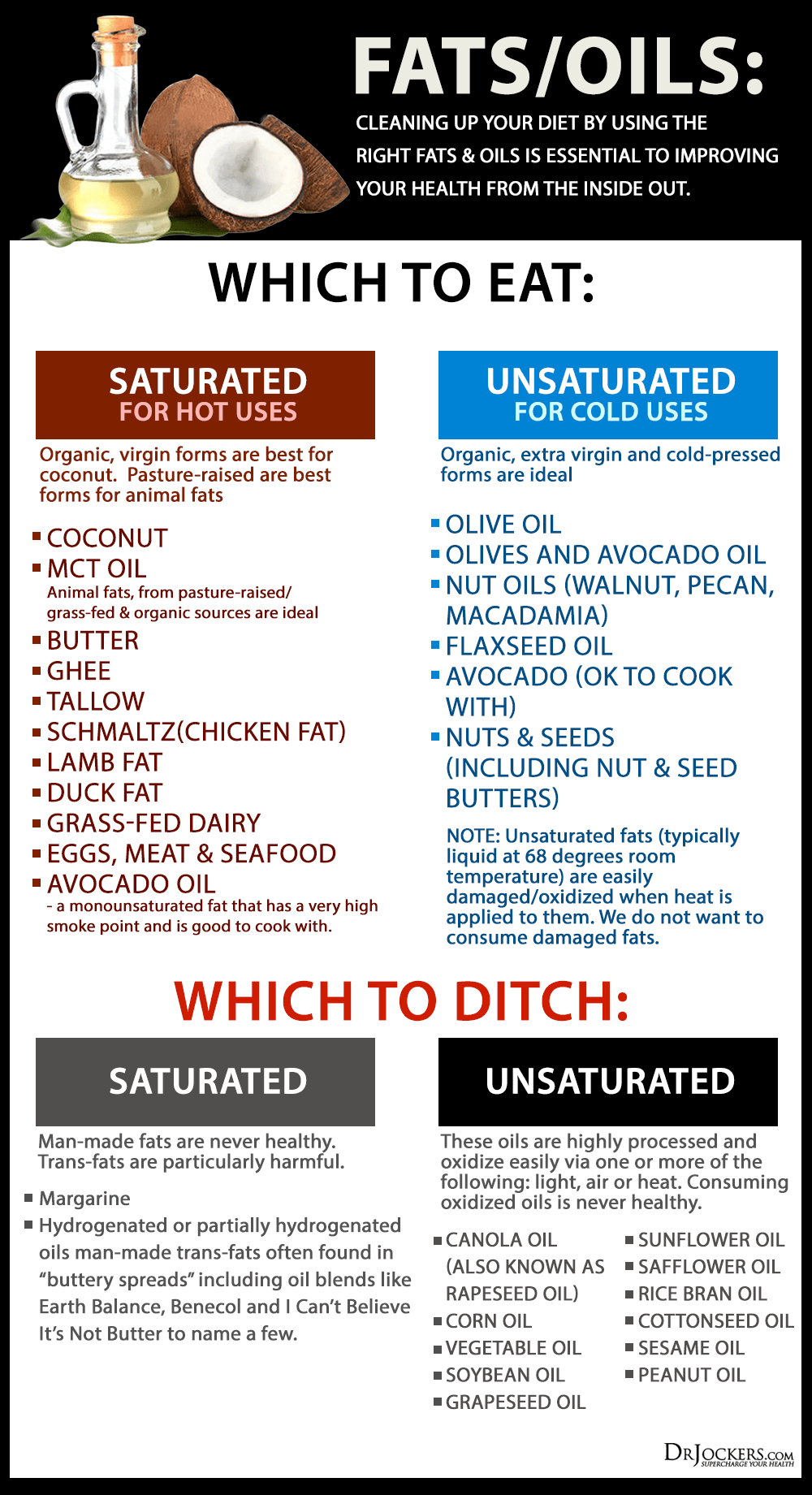
10. Artificial Sweeteners in Inflammatory Foods
You already know that refined sugar is not good for you. However, you need to watch out for artificial sweeteners and flavor enhancers as well. Although not technically “foods,” these artificial sweeteners and flavor enhancers can be used to create inflammatory foods.
Aspartame, acesulfame potassium, monosodium glutamate, sucralose, and other artificial sweeteners may add a sweet flavor to your food, but they are not healthy. They are highly inflammatory. They have a neurotoxic effect on your brain and may lead to mood disorders and brain-related cancer (20). You can read more about artificial sweeteners in this article.
Natural Sweeteners
You don’t have to ban sweetness from your life. Monk fruit and stevia are natural, low-calorie sweet alternatives that don’t raise your blood sugar. You may add them to your tea, coffee, and healthy baked goods without adverse health effects.
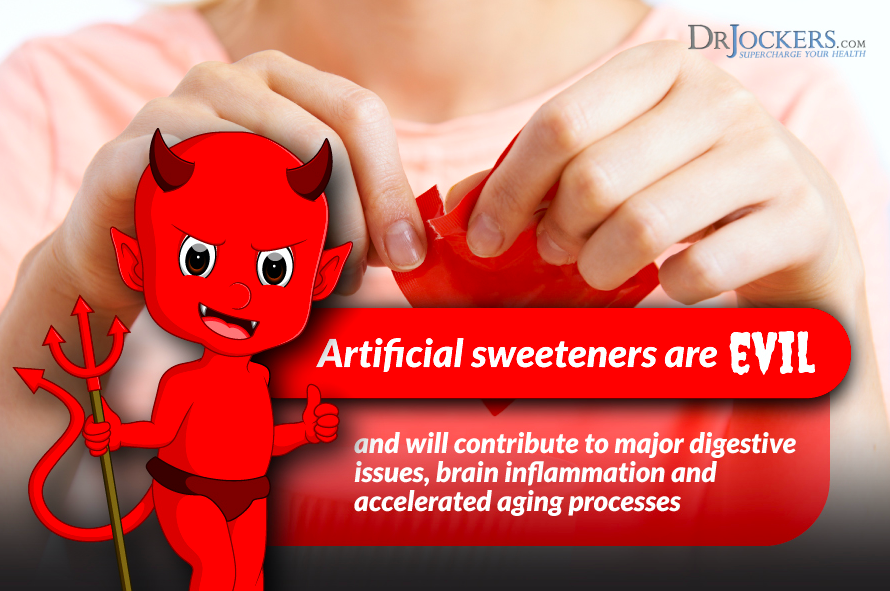
Follow a Healing Diet
Following a healing diet is the best thing you can do to reduce inflammation, lower your risk of developing a chronic disease, and improve your overall health. Fueling your body with an anti-inflammatory nutrition plan with nutrient-dense foods provides your cells and the cellular DNA of your body with the biological information necessary for your health.
Eating a healing diet may reduce inflammation in your body, stabilize your blood sugar, reduce toxic load, fuel your body with foundational nutrients, and support your healthy blood pH (21, 22, 23, 24, 25, 26, 27, 28, 29, 30, 31).
To follow a healing diet, first, you need to reduce or eliminate sugar and grains. As you’ve learned, white pasta, bread, rice, pizza, crackers, cereals, canned goods, ketchup, fruit drinks, deli meat, conventional yogurts, and candy are full of sugar and carbs and are highly inflammatory. Instead, for high functioning, you need vitamins, minerals, enzymes, and antioxidants from greens, vegetables, herbs, sprouts, and fruits.
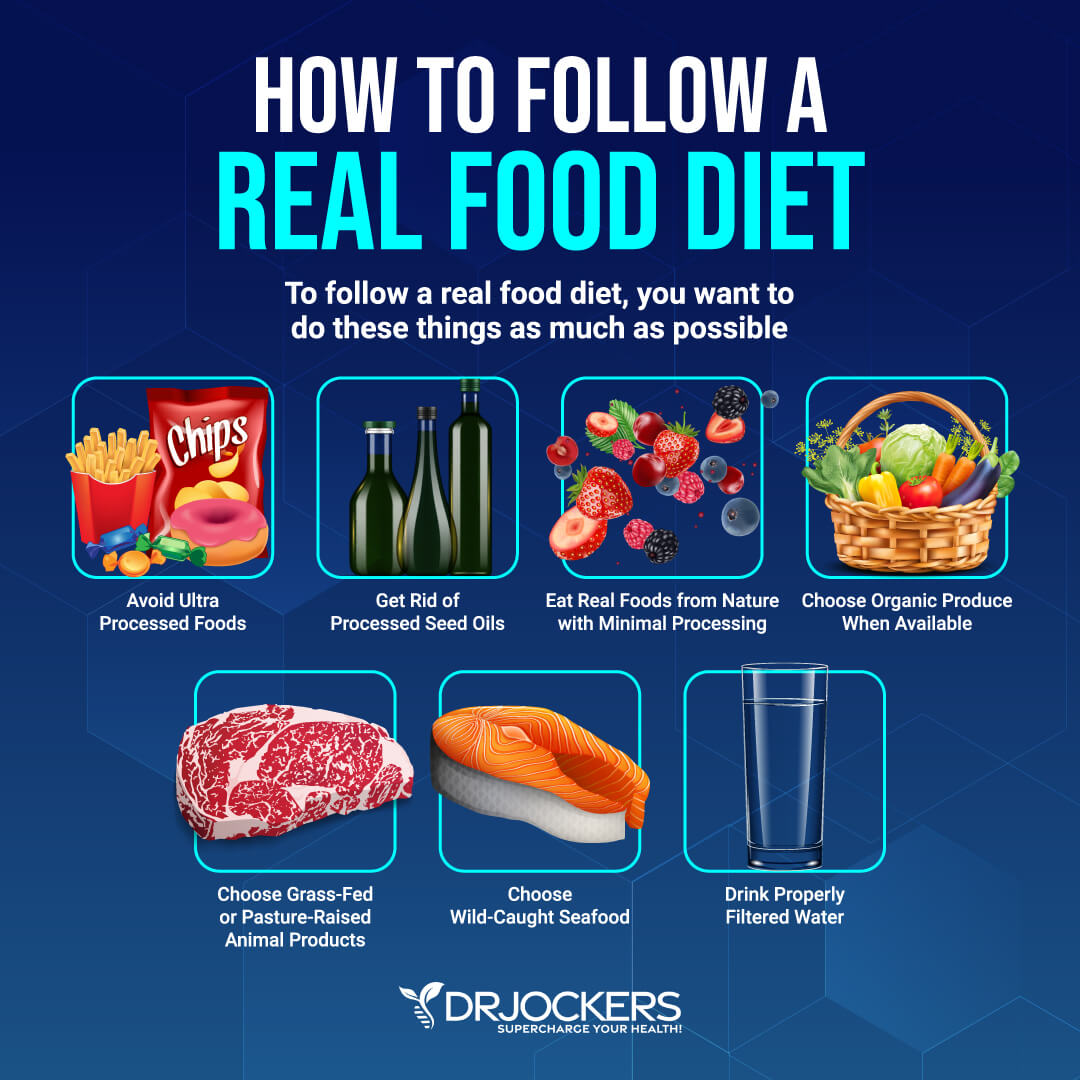
Second, you need to get rid of bad fats, such as hydrogenated soybean, corn, and palm oils, and unhealthy vegetable oils, such as canola, safflower, and peanut oil. Instead, you need to focus on healthy fats, such as coconut oil, avocados, pasture-raised butter and ghee, nuts, and seeds.
Lastly, you need to change the meat you eat. Eliminate processed and conventional meat. Choose organic, grass-fed beef, pasture-raised poultry, wild-caught fish, and pasture-raised eggs for clean protein and healthy nutrients. To learn more about the benefits of a healing diet, read this article.
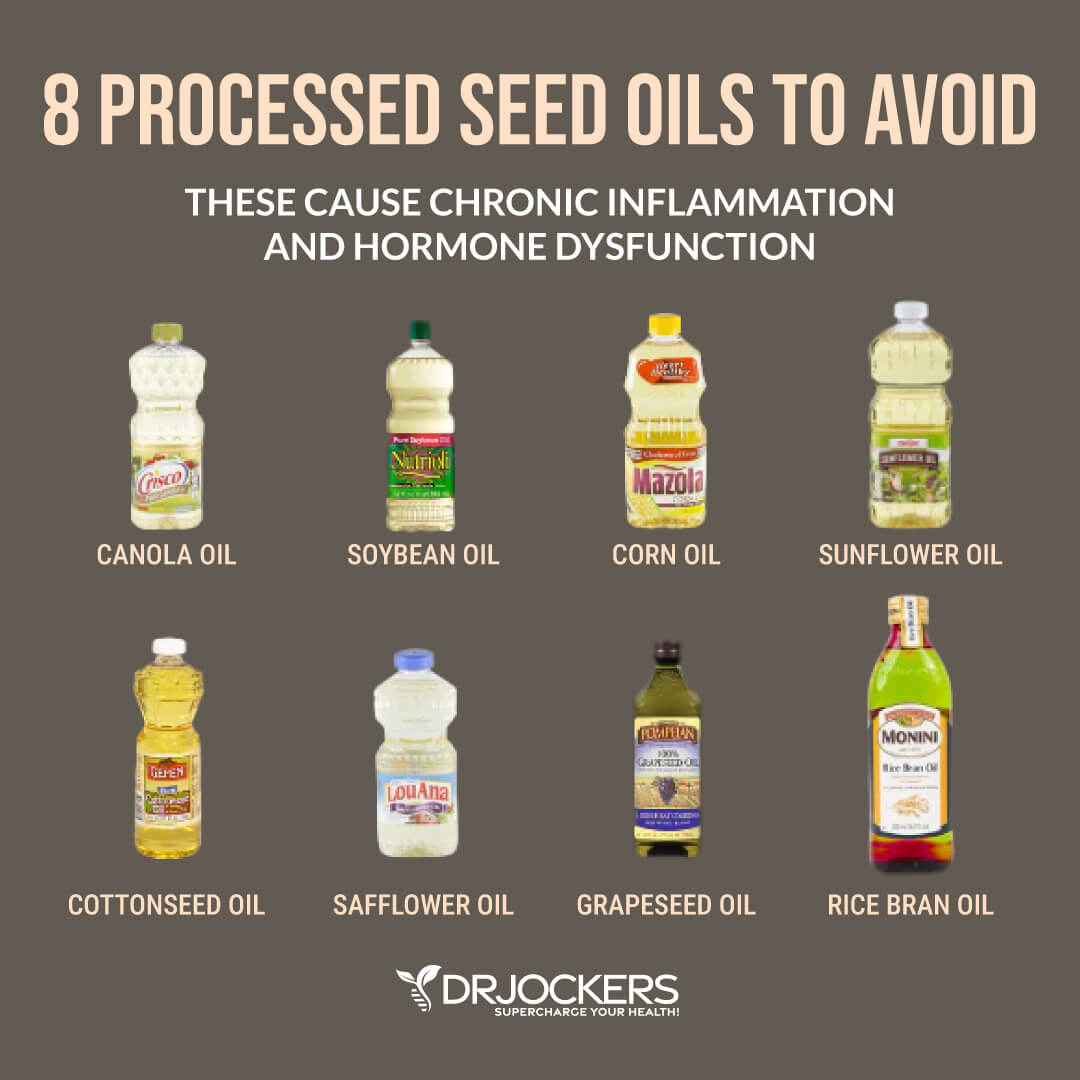
Final Thoughts on Inflammatory Foods
Inflammation is your body’s natural defense mechanism. However, when inflammation turns chronic due to an excessive stress load on your body, it becomes a problem.
Chronic inflammation overwhelms your immune system and may lead to chronic pain and health issues. Eating an anti-inflammatory healing diet is crucial to reduce inflammation, pain, and disease.
Following my guide, you will have a clear idea of what inflammatory foods to avoid, what anti-inflammatory and nutrient-dense foods to eat, and how to protect your body to create the health you desire. Here is a helpful article on how to follow a real food-based anti-inflammatory nutrition plan.
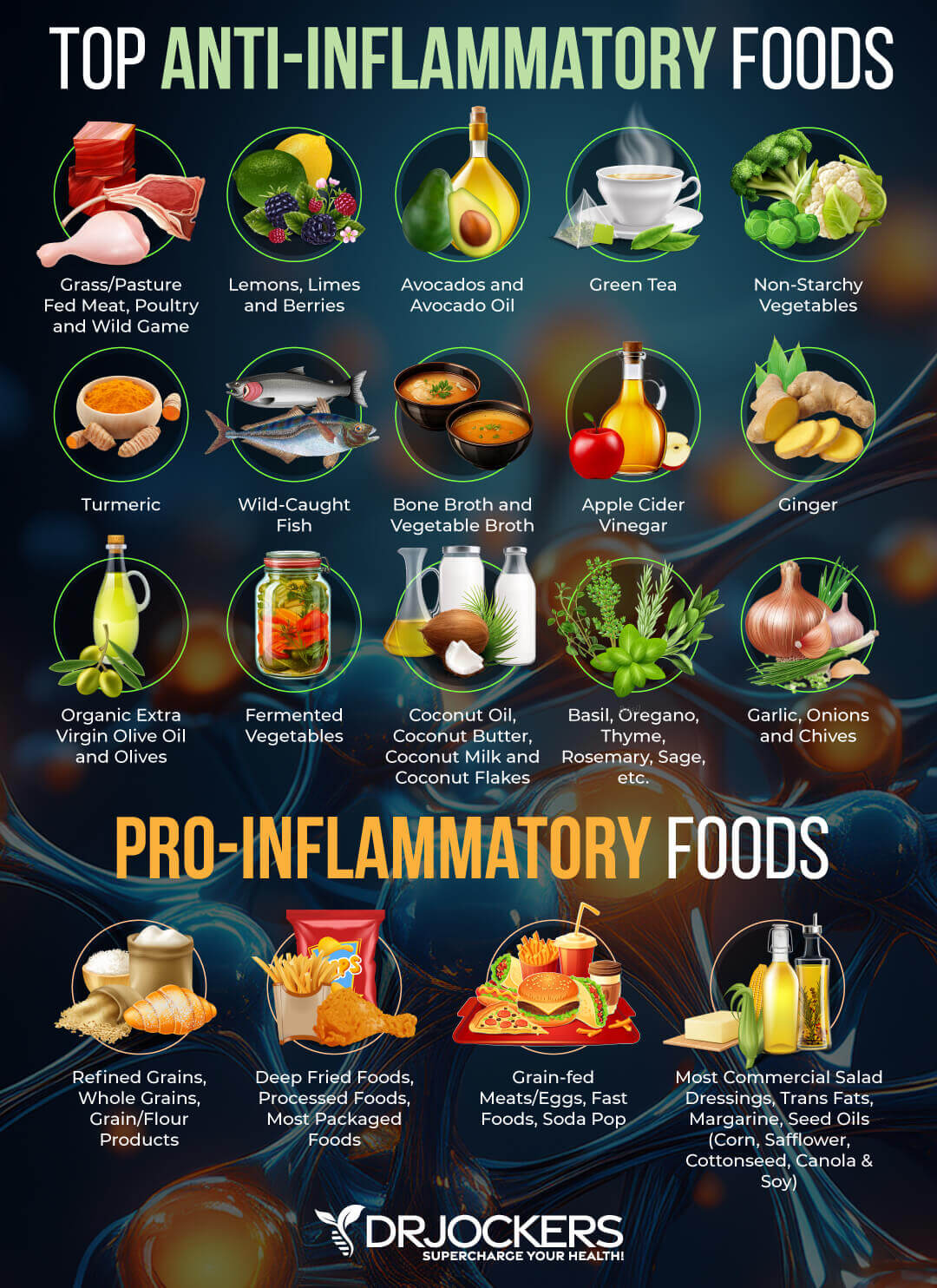
If you want to work with a functional health coach, I recommend this article with tips on how to find a great coach. We do offer long-distance functional health coaching programs. For further support with your health goals, just reach out and our fantastic coaches are here to support your journey.

Inflammation Crushing Ebundle
The Inflammation Crushing Ebundle is designed to help you improve your brain, liver, immune system and discover the healing strategies, foods, and recipes to burn fat, reduce inflammation, and Thrive in Life!
As a doctor of natural medicine, I have spent the past 20 years studying the best healing strategies and working with hundreds of coaching clients, helping them overcome chronic health conditions and optimize their overall health.
In our Inflammation Crushing Ebundle, I have put together my very best strategies to reduce inflammation and optimize your healing potential. Take a look at what you will get inside these valuable guides below!
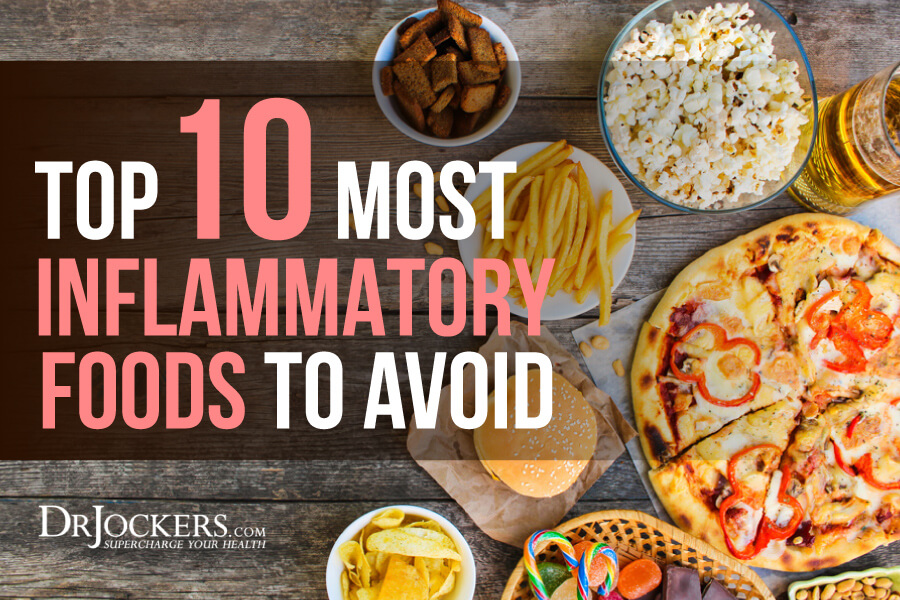
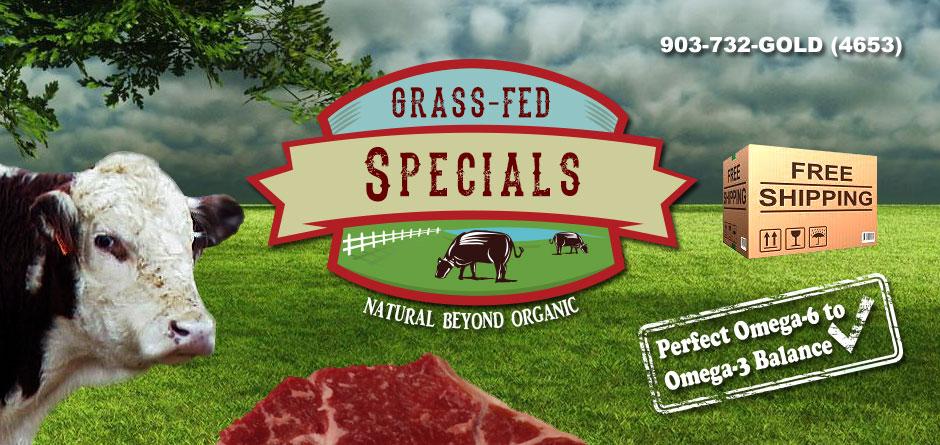

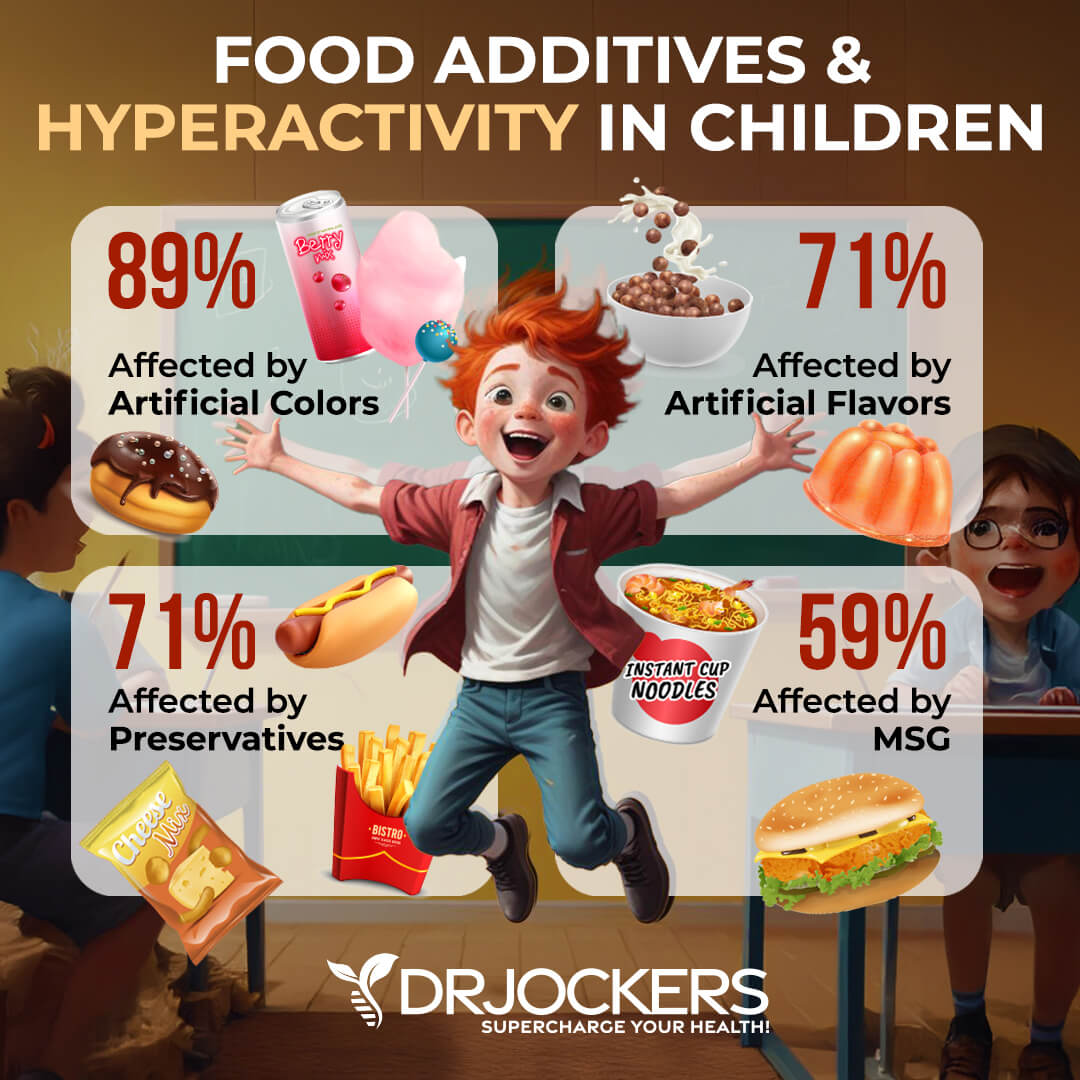

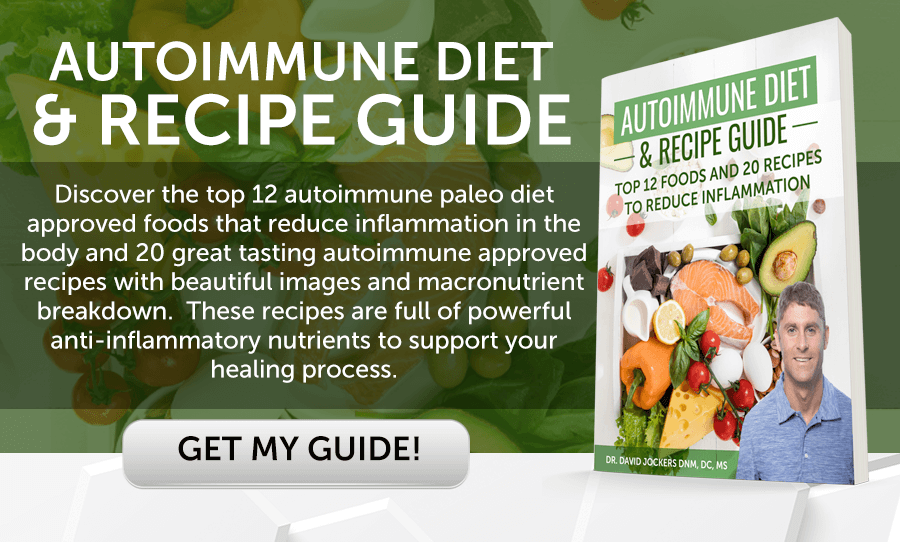


I am a non-medical personI with ulcerated colitis and have been “brousing” numerous articles by numerous sources over the past year and this is the most comprehensive and easy to follow presentation that I have seen on the subject – hank you
Hey Gladstone, Thanks for your feedback. I am so glad you found us!
Thanks for your visual charts. I will show my husband who doesn’t believe grass fed beef is any different.
Glad to hear this is helpful!
I appreciate your illustrations! It is something that I haven’t seen much of and it helps me understand and remember the information.
Thanks Victoria! I am glad to hear it is helpful to you.
Thank you Dr. Jockers for this easy to understand presentation. We must all take control of our choices in food and healthy living. This responsibility is ours to manage and must be deliberate in our follow-thru. Our health is at stake.
Hey Patrick, You are very welcome! Thank you for your feedback and support!
Thank you for an easy to follow article. I appreciate you giving your sources for the comprehensive information you have provided. Well done!
Thanks so much DC!
How does the Keto Diet affect those of us who have no gallbladder? I have difficulty digesting fats! Any advice?
Yes it makes it harder but it can be done successfully and I have a detailed article on that here: https://drjockers.com/following-a-ketogenic-diet-without-a-gallbladder/
Awesome! Now if you could lower the cost for products in the industry and make
it affordable for all that would be great.
Yes it would be great if the government stopped paying for the production of processed inflammatory foods to artificially make them cheap and reinvested that into making healthy foods more affordable.
When I understood the problems of CAFO raised meats, I tried veganism, but lost my hair and health. So I raised my own. I raise my own rabbits, chickens, geese, turkeys ducks, goats and sheep. I have had a cow also. I recommend Joel Salatin videos, Alan Savory videos and there are some others that pasture grow their animals, rejuvenate the land with their animal rotations, they really show how to do it the easy way.
Thanks for sharing!
I understand that wheat is treated with a chemical to dry it immediately before harvesting, and I cannot help but think that non-organically grown wheat contributes to the “gluten sensitivity” issue, making it worse. We used not to have these issues, and I have heard people say that they did not have the problem when visiting European countries where these chemicals are not used.
I am sure that is a factor Rosemary!
The modern wheat is a lab product from the 70s. The cell wall in the gluten is thicker today as it was in natural types and makes it hard to digest. The reason for doing so was the application of Glyphosate. It is sprayed over wheat fields even 6 weeks before harvest and everything dies accept the wheat plant.
The lack of digestion leaves particles in your inner mucosa of the intestine causing the inflammation. Science knows this for years of course.
I am allergic to dairy. If I want “butter,” I eat those with the oils. Is there a better alternative?
Yes this is a good alternative https://amzn.to/2MU56g6
Very good info here Thank you
Thanks for your support Aidan!
Thank you Dr Jockers for this important info! You are very generous with your info! I teach senior citizens how to “Enjoy their Golden Years” and this info will be shared with them!
Great to hear that Dick! Blessings to you and your family!
I was to a Dr that said my thyroid is related to
Autoimmune and put me on AIP eating plan. I recently ate gluten free bread. Rice and oatmeal. I have not had these in a few years, and my stomach is so bloated. What can I do to get inflammation gone.
Thank you for your site. You and your wife and so knowledgeable and kind
Sorry to hear that! If you do happen to eat gluten, taking some of our Wheat Rescue product will help you reduce the damage. Also, activated charcoal can be very helpful to have on hand to reduce bloating. https://store.drjockers.com/products/wheatrescue
Here is the charcoal link. Be sure to use the coupon code Jockers10 at checkout to save 10% on your order. https://store.drjockers.com/products/activated-coconut-charcoal
I love Dr Jockers’ infograms – they sum up so much useful information in one picture!
Thanks so much for your support! Blessings to you!
I appreciate information written out for me, thank u. I have no patience for wordy videos which are over used & I can read much faster than listen to someone talk. Sadly, these wonderful alternatives are for the most part far too expensive, not everyone in America has unlimited resources to purchase food.
Glad this was so helpful for you! The more consumer demand, the lower the pricing will be for these products.
You mentioned the importance of avoiding sugar and artificial sweeteners, but you did not mention honey. Is there a place for it in a healthy diet? I put a teaspoon of unrefined honey in my organic coffee in the morning. Does that aggravate blood sugar levels? Would stevia be preferable?
I would only recommend small bits of honey as it will drive up your blood sugar levels. I have found that stevia is a much better sweetener and easier on your blood sugar levels.
Thank you, Dr. Jockers for this helfpful article.
I‘m still confused about the ‚bad‘ fats. Are they bad in every form, or are they acceptable if organic and cold pressed (sundflower oil or sesame oil, f.ex.)? Also, here in Europe, black cumin oil (nigella sativa), for ex. is praised to have healing qualities for many illnesses. It is not on your list, however, I suppose it would be on the ‚bad‘ side, right? My last question is: what is ‚vegetable oil?
That is a good question. Organic, cold pressed seed oils that are high in omega 6 fats but also contain a lot of vitamin E such as sunflower and sesame oil are much better than the ones that are lower in vitamin E such as cottonseed oil or soybean oil. However, I would only use these in moderation and not something to consume as a base oil.
Thank you very much 🙂
As an English Nutritional Therapist, I am 99.9999% on board with everything Dr Jockers says, but I have a problem with stevia. It is difficult to get people away from sugary foods if they perpetuate a sweet tooth with stevia. I wonder what Dr J’s take on this is. Given the enormous (sorry about the pun) numbers of people who are now obese/morbidly obese, Type II diabetic, wouldn’t it be better to wean them off of this perpetual sugar craving. At the risk of sounding draconian, I ask all my clients to omit sugar/stevia etc altogether; they often lose the taste and are much healthier of course.
Yes this is true Annie, however, I think having occasional sweet foods adds flavor to life and makes life more enjoyable. So I believe many people can do occasional stevia/monk fruit sweetened foods.
Many thanks for the reply Dr Jockers. I agree a little is fine again once we’ve got the cravings under control. Sugar is so addictive isn’t it, and ultimately so harmful.
My doctor suggests Allulose instead of Stevia. What do you think?
Only if you have a sensitivity to stevia. I find that the majority of people do better with stevia than allulose but there are some who have sensitivities to stevia and must avoid it.
I would really like to know about the possible detrimental effect of using monk fruit/stevia on the pancreas. Doesn’t the pancreas release enzymes when the mouth tastes sweetness? Can this be damaging to the pancrease over the long term? Have there been any studies on this?
Hello Kate, there is no detrimental impact on the pancreas from monk fruit/stevia sweetened foods used on occasion. If you are sucking down sweetened beverages all day long, that could overwelm the pancreas, but if you are using it once or twice daily, it is totally fine.
Thank you Dr. Jockers for yet another highly interesting article you have composed. You had stated under the category of “Wild Caught” fish the following: “Some fish, especially Salmon, may contain mercury.” Wild caught salmon is practically extinct from the Atlantic Ocean, so the vast majority of salmon are derived from the Pacific. I have read several publications that salmon caught from the pristine waters of the North Pacific near Alaska have very low levels of mercury. I am now perplexed by this conflicting information. Can you please shed some light on this confusing subject?
As long as we are on the topic of salmon, I was wondering if a couple of questions could be answered. It has been a scientific fact that the DHA and EPA bound to Phospholipids makes them more absorbable than Omega-3’s attached to TG, especially to the brain. The DHA and EPA bound to Phospholipids are found in rather significant amounts from Krill Oil and oil derived from the heads of “Atlantic” Salmon (which are farm-raised). Are there any differences between Salmon from the North Pacific and the Atlantic Salmon? The question remains whether the heads of Alaskan Salmon contain any DHA and EPA bound to Phospholipids, just like their Atlantic cousins? Furthermore, the Atlantic Salmon contain beneficial Fish Peptides, so is it possible the Alaskan Salmon does also? My research has hit a dead end. Thanks Dr. Jockers! I often forward your highly informative emails to many relatives and friends.
Great Information! Thank You!
Thank you for your support Donna!
This will definitely be shared with my family as many of us have had issues with inflammation, our autoimmune systems and / or difficult recovery from the past two years of the global illness. Thank you, thank you and THANK YOU for comprehensive information that we can actually benefit from and use in our every day life! Finally – health again!
Very glad to hear this Ramona! Blessings to you!
I didn’t read that raw honey was an alternative to a sweetener. Is honey not good for us?
Raw honey has some beneficial properties but it is also very high in sugar.
Wonderful article, you touched on many critical subjects pertaining to what we need to eat daily. Being a Senior citizen who had his gallbladder removed about 10 years ago I have developed a large abdomen, the first couple of years after my gallbladder was removed I found my self sitting on the toilet quite often not being able to tolerate much of anything I ate but now 10 years later it seems everything is back to normal with the exception of a large gut, it seems what ever I eat sometimes I bloat up, I have stopped drinking all dairy and I have changed from nut oils to lard or coconut oils, I have been on Keto in those ten years and did loose up to 50 lbs but that has all returned. I cook everyday for the family and I have noticed myself getting sleepy soon after I get out of bed, I have to force myself to get up and out to do things I normally used to do easily and it has been very hard to loose weight even after fasting sometimes 24 to 36 hours or only eating meat and veggies. I still eat bread and have no problems, just aches and pains in joints that I have damaged over the years.
Really sorry to hear about this. I would strongly encourage reaching out to one of our functional health coaches so they can work with you and get you on a healing protocol. https://drjockers.leadpages.co/long-distance-coaching-dr-jockers/
Is goats whey inflammatory
No it is very good!
Dr. Jockers –
What about Sprouted for Life Gluten Free Flax seed bread?
And, why isn’t Olive Oil, the staple of the Mediterranean diet on your list of healthy fats?
Yes we love extra virgin olive oil. As for sprouted bread, that is better than most other breads but may not be a good fit for many people.
I’ve been reading about oxylates in certain foods like almonds, spinach, chard, and others. It seems that they can be very harmful, what is your opinion on this? Thank you
Yes here is a helpful article all about oxalates: https://drjockers.com/low-oxalate-diet-overview-best-foods-and-how-to-do-it/
Dr. Jockers, Thanks for all your very heipful articles.
I hope you would let me know if unpasteurized buffalo milk and cream are healthy; is sprouted grain bread such as Ezekiel bread are ok to consume. Thanks very much.
Yes unpasteurized buffalo milk and cream are healthy for most people. Sprouted grain bread may be ok for some but for many individuals – grains can drive up inflammation.
Ok so I’ve been eating Applegate’s turkey deli meat. It says on their label it’s organic and in the ingredients are organic turkey, sea salt, chicken broth. Is this safe or do you suggest I eat something else?
Yes that is safe as long as you feel good eating it.
Does grassfed dairy cause inflammation like regular dairy?. What’s your opinion on potato starch, tapioca starch & other low carb resistance starches?, are they good or bad?.
Hello Doctor Jockers thank you for the information! I have RA so have been avoiding poultry because of their chickens or turkeys being fed grains corn… I’ve made some phone calls and even passed your raise poultry are still fed grains which supposedly can get into my system. Can’t seem to find pastor rays Poultry that is strictly a natural diet. Do you know of any sources?
If you purchase organic lunch meat, is it still considered bad? I know it’s not great to eat it all the time, but sometimes it is convenient. Thank you.
We eat a meat based diet… carnivore mostly… to deal with some health issues. There is no way we can afford grass fed/pasture raised meat though we wish we could. My philosophy is to eat as well as is affordable and for sure having eliminated so many foods even beyond what is junk and inflammatory… has to be a good thing. When I read this advice I get discouraged b/c we are so strict and taking such good care of ourselves but we also have to be mindful of cost. Thanks for your informative articles.
I like these complilations!!!
What about sour dough. It is wheat but is good for your gut because of the fermentation. I usually make my own that has 4 ingredients.
Thanks
Thank you. It always makes my day to see that I am totally doing all the right things for my health and for dealing with my Celiac disease. Thank you especially for a very comprehensive but interesting and easy to follow guide for those who have not been through the long education journey I have been on. I still have people every week whose comment on my stating I eat a lot of high-quality fats is “but you aren’t fat.” I can’t begin to count the number of people I have told that “fats don’t make you fat, refined carbs and sugars make you fat.”